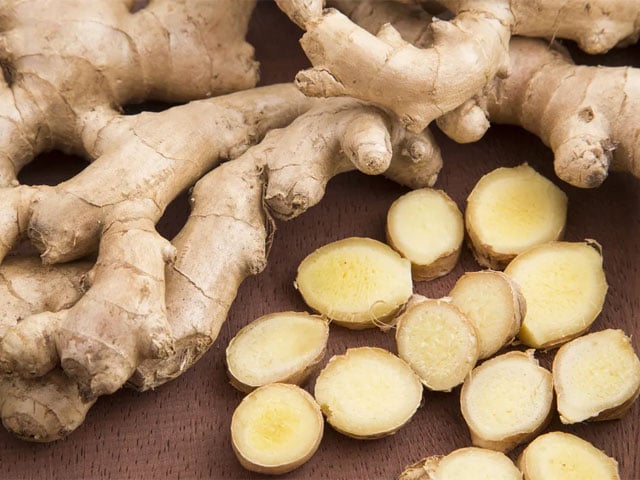Michigan: A new study suggests that ginger may play an important role in controlling inflammation in people with autoimmune diseases.
In autoimmune diseases, the immune system attacks different organs of the body.
Researchers from the University of Michigan and the University of Colorado studied the effects of a ginger supplement on a type of white blood cell called neutrophils.
The research team, published in the journal JCI Insight, was interested in an immune response called neutrophil extracellular trap (NET) formation.
This immune response is also known as NETosis and is associated with inflammation that can cause autoimmune diseases.
According to the researchers, NETs are fine, spider web-like structures that promote inflammation and blood clotting. Aggravation of this process can lead to autoimmune diseases such as rheumatoid arthritis.
In the study, researchers found that ginger consumption by healthy people helped make their neutrophils (a type of white blood cell that fights infection and heals wounds) more resistant to NETosis. Gives.
The study found that ginger may help prevent NETosis, said senior author Kristen Demoroll, a professor at the University of Colorado. It is a natural supplement that can be helpful in treating symptoms of inflammation and various autoimmune diseases.
In a clinical trial, the team of researchers found that in healthy volunteers, taking a ginger supplement daily for seven days (20 mg/day) improved the chemical cAMP inside neutrophils.
Elevated levels of cAMP inhibit NETosis in response to several disease-related stimuli.
(function(d, s, id){
var js, fjs = d.getElementsByTagName(s)[0];
if (d.getElementById(id)) {return;}
js = d.createElement(s); js.id = id;
js.src = “//connect.facebook.net/en_US/sdk.js#xfbml=1&version=v2.3&appId=770767426360150”;
fjs.parentNode.insertBefore(js, fjs);
}(document, ‘script’, ‘facebook-jssdk’));
(function(d, s, id) {
var js, fjs = d.getElementsByTagName(s)[0];
if (d.getElementById(id)) return;
js = d.createElement(s); js.id = id;
js.src = “//connect.facebook.net/en_GB/sdk.js#xfbml=1&version=v2.7”;
fjs.parentNode.insertBefore(js, fjs);
}(document, ‘script’, ‘facebook-jssdk’));



